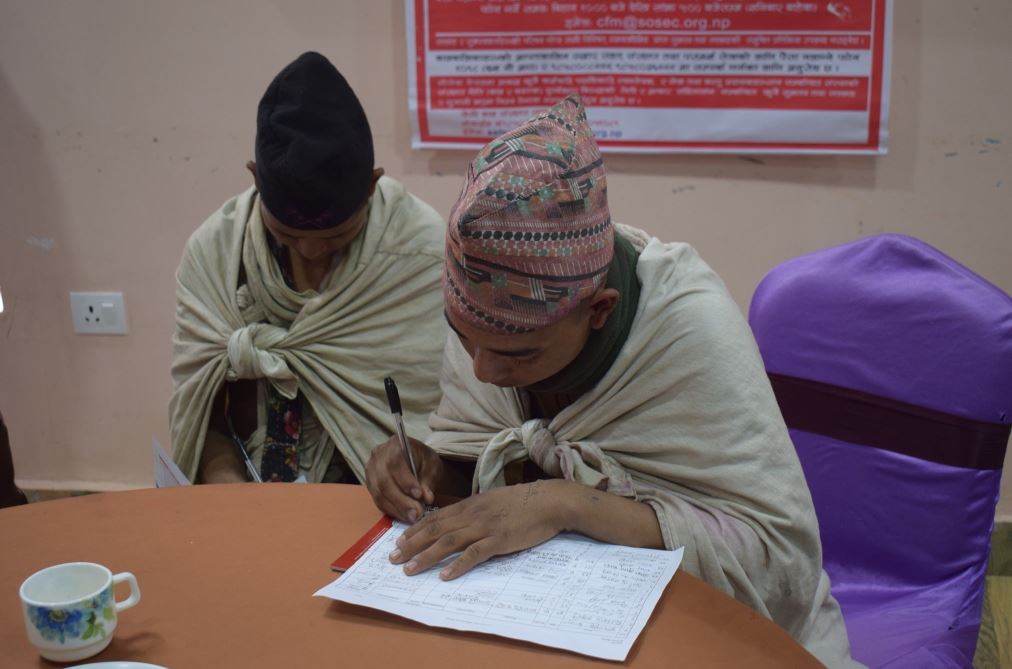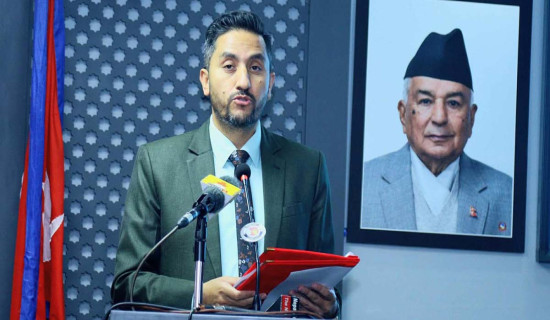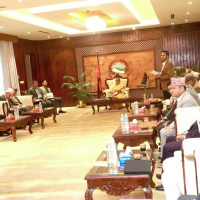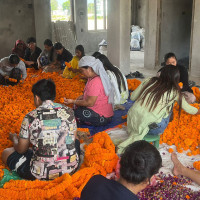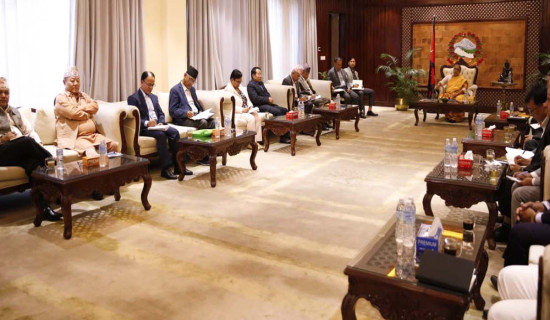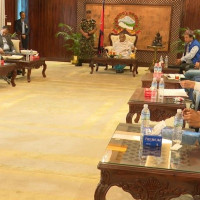- Wednesday, 22 October 2025
Raute community in crisis amid modernisation
By Lalit Basel,Surkhet, Mar. 30: The endangered Raute community, known for their nomadic lifestyle in the forests of Karnali and Sudurpaschim provinces, is facing a growing crisis due to climate change, modernisation and environmental degradation.
The Raute community is in threat as their unique traditions are increasingly influenced by modernisation, wildfires have become more frequent in the forests and rising temperatures have intensified the impact of climate change.
Advocate Dr. Raju Thapa, who studied the challenges faced by the Raute community, highlighted that while their cultural beliefs have helped preserve their identity, they are increasingly facing difficulties in accessing healthcare and education.
He said that modernisation is now visibly influencing Raute youths. In the past, the Raute community believed touching money was sinful, but now they have started accepting it. Moreover, many are spending their social security allowances on alcohol and tobacco, raising concerns about their long-term well-being.
Climate change has severely impacted their food sources and traditional herbal collection practices. Forest degradation and rising temperatures have further disrupted their forest-dependent livelihoods. Dr. Thapa suggested protecting their migration routes, implementing mobile education and healthcare programmes and promoting sustainable cultural tourism to support their livelihood without compromising their identity.
Raute youth Subin Bahadur Shahi expressed concerns about the scarcity of timber in forests and claimed that community forests often restrict them from collecting wood.
He also said that the government’s allowances for them are not distributed monthly, making it difficult for them to sustain their daily lives. He also said that their tradition does not align with settling in one place or pursuing formal education.
To safeguard the existence of the Raute community, Dr. Thapa stressed the need to protect their cultural heritage and address rising substance abuse issues. He also said that rather than imposing external ideas on them, efforts should focus on equipping them with essential knowledge and resources to help them adapt to changing circumstances while preserving their identity.
Hira Singh Thapa, Executive Director of SOSEC Nepal, an NGO, which has been working in Raute communities, recommended supporting their development without harming their culture and traditions. Recently, a programme organised in collaboration with DPNet Karnali Province, Gurans Rural Municipality, AEIN and SOSEC Nepal raised concerns about their current situation.
Karnali Province's Minister for Social Development, Ghana Shyam Bhandari, acknowledged that while there has been awareness about the Raute community, meaningful utilisation of support programmes remains lacking.
He suggested showcasing and marketing the crafts made by the Raute community as a means of economic empowerment.
Minister Bhandari also stressed the need for coordinated efforts among local communities, the government and stakeholders to address the risks the Raute community faces due to climate change.
The minister also suggested documenting their language and script, adding that the provincial government plans to develop a systematic approach to this endeavour in the future.
Currently, the Raute community is residing in Surkhet, with a recorded population of 138.

